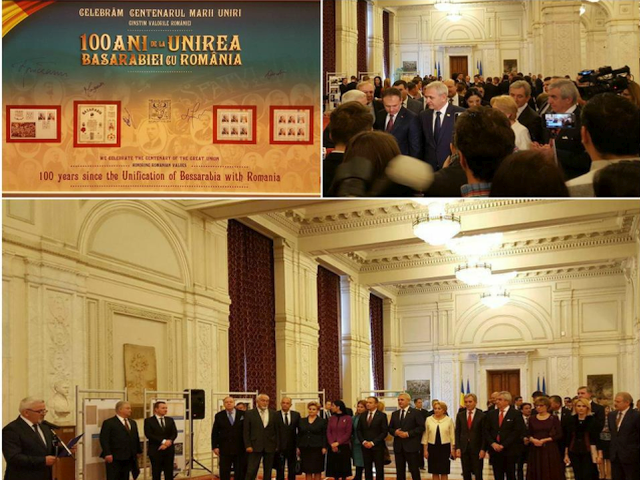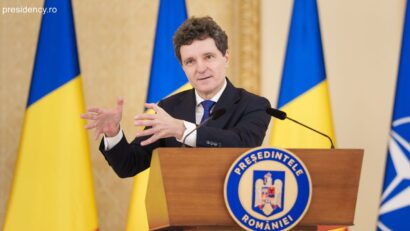The future of Bucharest-Chisinau relations
27th March marks the celebration of 100 years since the union of Bessarabia with Romania.

Roxana Vasile, 28.03.2018, 12:45
On Tuesday, Romania celebrated 100 years since the union of Bessarabia with Romania. To mark the occasion, the Romanian Parliament met in a solemn session, where speeches were given and a declaration was adopted. The document reads that Parliament deems legitimate the wish of those citizens of the Republic of Moldova who support the union with Romania as a natural next step in the process of the development and affirmation of the Romanian nation. Romania and its citizens have always been ready to welcome such a wish, which would be the expression of the Moldovan citizens sovereign will.
A province with a predominantly Romanian-speaking population that was part of the Tsarist Empire 106 years, Bessarabia became united with the mother country, Romania, in 1918. Years later, in 1940, the Soviet Union re-annexed it, under an ultimatum, and the present-day Republic of Moldova was created on part of that territory. With the aim of stifling and denying the Romanian identity of the local population, the Soviet authorities invented a Moldovan language and identity, different from the Romanian one. Then, to mark its territory, in 1992, Moscow supported with troops the pro-Russian separatist ambitions in Transdienstr.
During every election held in Moldova, there is a fierce fight between the politicians who support the countrys European integration and those who would like to bring Moldova back under Russias sphere of influence. Therefore, things are by no means simple, and a reunification with Romania would take time, as Dan Dungaciu, the Director of the International Political Sciences and International Relations of the Romanian Academy said:
“If the citizens of the Republic of Moldova ever want to reunite with Romania, this will be done in keeping with the international legislation in force, with the provisions of the final agreements signed in Helsinki, which speak of border inviolability and also of the legitimacy of a decision that is the result of both parties common wish. The situation in Chisinau is different, because official standpoints are, maybe not radically different, but in any case different. The Moldovan officials message is clear: on the one hand, they are interested in the reintegration of the Republic of Moldova, which means the Transdniester region, because they want to avoid what happened in 1992 and, secondly, if a new relationship with Romania is ever to be considered, this must be done by means of a referendum. In other words, the citizens of the Republic of Moldova would have to decide that in a referendum.”
Until reunification becomes a genuine topic of discussion, Romanian officials agree that what is important right now is to strengthen the special relations between Romania and the Republic of Moldova and support the European and Euro-Atlantic efforts of that small east-European state, which is the poorest in Europe. As Moldovan society is divided and the Russian propaganda strong, Romanias support is essential.






























